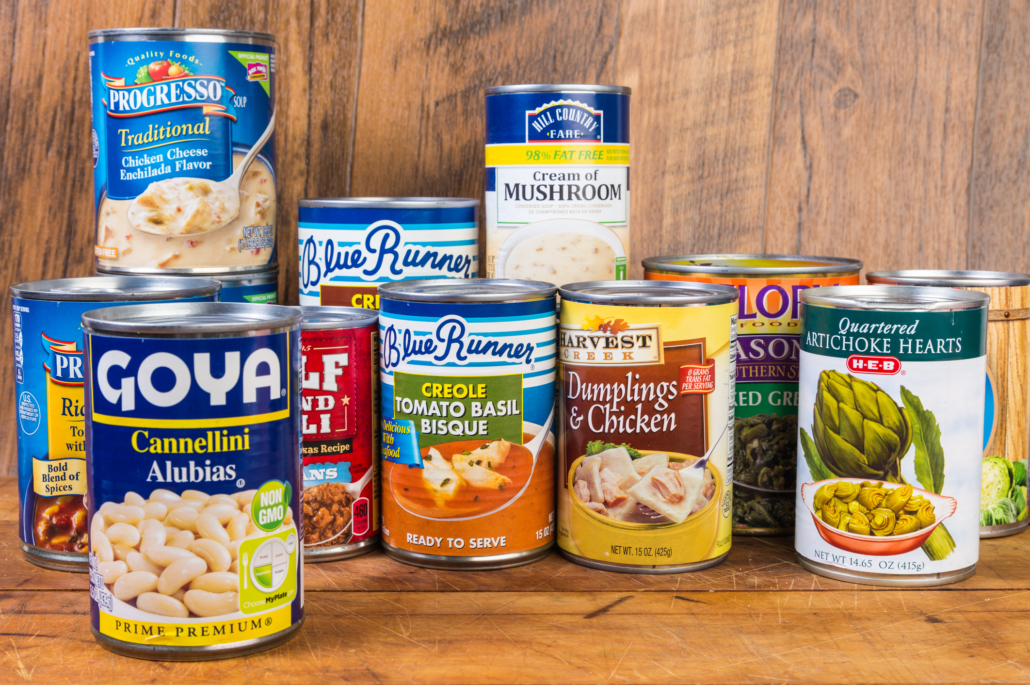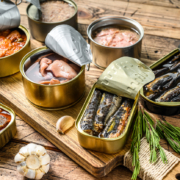Canned Food For Survival
Canned food is an excellent choice for emergency and survival situations, such as natural disasters or power outages, where fresh food may not be readily available. These foods are often high in nutrients and have a long shelf life, decreasing the risk of spoilage. They are also easy to store and transport, making them a convenient option for survival needs.
When selecting canned foods, it is essential to choose those with high-quality ingredients that are low in sodium and added sugars. Some of the best options include protein sources such as canned fish, meat, and beans, as well as fruits and vegetables. Proper storage and rotation of canned foods are crucial to ensuring they stay fresh and edible for long periods. Canned food can be an excellent addition to your survival kit and can provide sustenance and energy during challenging times.
Shelf Life For Canned Food
Canned food can last for a very long time if stored properly, but it does have a shelf life. Most canned goods have an average shelf life of 2-5 years from the date of purchase, but this can vary depending on the type of food and storage conditions.
Some canned food can last up to 10 years (I would only recommend this for an emergency situation) if stored properly. This is due to the canning process, which involves sealing the food in an airtight container and heating it to high temperatures, killing off bacteria and other harmful microorganisms that could spoil the food. However, it is important to note that not all canned foods last the same amount of time, as some are more prone to degradation than others.
High-acid foods such as tomato sauce and fruits tend to have a shorter shelf life than low-acid foods like canned meats. It’s important to check the expiration date before consuming any canned goods, and to properly store them in a cool, dry place away from direct sunlight and heat sources. Bulging, rusted, or dented cans should be thrown away as they may contain dangerous bacteria. Always use common sense and trust your instincts when it comes to consuming canned food that has been stored for a long period of time.

Always Choose Canned Food With High Proteins First
When it comes to a survival situation, it is essential to choose canned foods that are high in proteins first. Proteins are essential for the body, as they help in building and repairing tissues, boosting the immune system, and providing energy. Canned foods, such as tuna, salmon, chicken, and beans are great sources of protein and can help keep you energized and functioning well during a crisis.
It is also advisable to pair canned foods with other sources of nutrition, such as fruits, vegetables, and grains, to ensure a balanced diet. With a well-stocked supply of canned foods with high proteins, you increase your chances of survival in an emergency situation.
Here Are Some Of The Best Options Of Canned Food For Survival
Meat
Canned meat can be a valuable addition to a survival kit or pantry due to its long shelf life and ease of storage. It is a good source of protein and can be consumed straight from the can or cooked in various recipes, such as fried rice, omelets, sandwiches, and casseroles. It can also be diced and added to soups and stews for a protein boost.
- Spam
- Chunk Chicken or Turkey
- Roast Beef
- Corned Beef or Corned Beef Hash
- Vienna Sausages
- Diced Ham
- Beef Stew
- Pulled Pork
Fish

Canned fish is a great option for survival, as it provides a convenient source of protein and other essential nutrients. Fish such as tuna, salmon, and sardines are popular for canned fish products, as they are high in omega-3 fatty acids, which are important for heart and brain health.
- Tuna
- Mackerel
- Salmon
- Sardines
Beans
Canned beans are a great option for survival situations because they are shelf-stable and packed with nutrients. Whether preparing for a natural disaster or adding emergency supplies to your pantry, canned beans are a reliable source of protein and carbohydrates that can help sustain your energy levels.
Some benefits of canned beans for survival include their long shelf life, affordability, and versatility in preparing different meals. You can add them to soups, stews, or chili, or simply heat them and serve them as a side dish.
Canned beans also offer many health benefits, including lowered cholesterol levels, improved digestion, and reduced risk of chronic diseases like heart disease and type 2 diabetes.
- Red, Black, Pink, White, and all the other colored bean.
- Garbanzo or chickpeas
- Black eyes peas
- Seasoned butter beans
Vegetables
Canned vegetables are convenient, have a long shelf life, and require minimal preparation. They can provide important nutrients like vitamins, fiber, and minerals that may be lacking in other survival foods.
It’s important to choose a variety of canned vegetables to ensure a balanced diet. Look for options without added salt or sugar to avoid excess sodium or calories.
- Corn
- Carrots
- Green beans
- Potatoes
- Sweet peas

Canned Meals
Canned meals can be good options for survival since they have a long shelf life, making them ideal for stocking up in advance. Soups are usually packed with nutrients and can provide a decent amount of calories, making them a good option for a quick, easy, and satisfying meal.
Most canned pasta products are also easy to prepare and can keep you full for a while. However, these options are often high in sodium and may not be the healthiest choice for a long-term diet. It’s important to balance canned foods with fresh fruits and vegetables and other non-perishable foods, such as nuts and seeds, to ensure that you are getting a variety of nutrients. In conclusion, canned meals are viable choices in emergency situations but not ideal for long-term survival.
- Soup
- Chili
- Spaghetti-os
- Ravioli
- Beef Stew
Canned Food For Bartering
During a survival situation, canned food can become a valuable item for bartering. In a crisis, basic food supplies can quickly become scarce, and people will be willing to trade nearly anything for a good meal. Having a stash of canned goods can give you leverage and bargaining power to trade for other necessary items, such as weapons, medicine and equipment. Canned food can be an excellent bartering item during a survival crisis, giving you access to the essential goods and services that you need to survive.
In Conclusion...
In conclusion, canned food can be a valuable resource for survival situations. With a long shelf life and ability to provide necessary nutrients, canned goods are a reliable source of sustenance. However, it is important to ensure that the canned goods are properly stored and checked for signs of spoilage before consumption. Additionally, it is recommended to have a varied selection of canned foods to prevent boredom and to provide a balanced diet. While canned food may not be the most appetizing option, it can be a crucial component to surviving in emergency situations.
Lorem ipsum dolor sit amet, consectetur adipiscing elit. Ut elit tellus, luctus nec ullamcorper mattis, pulvinar dapibus leo.

